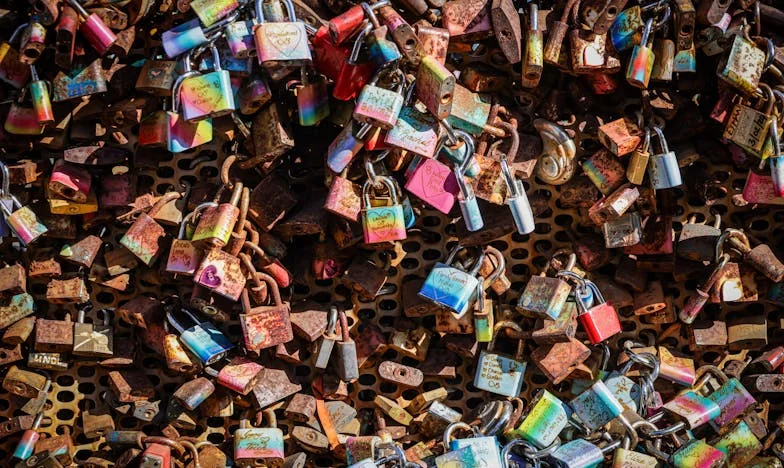Close Enough to Touch: A Family Torn by Silence
“She didn’t come. Again.”
The words stuck in my throat as I watched little Sam, cheeks puffed and eyes squeezed shut, blow out the three candles on his dinosaur cake. His mother cheered. My husband Mark clapped, too loud, his smile strained. But I couldn’t tear my eyes away from the empty chair near the window, the one I’d set just in case—just in case Anna changed her mind and decided, after all these years, to come home.
Mark leaned in, voice low and tight. “I told you it wouldn’t happen, Chris. She doesn’t want to be here.”
I flinched. “She’s our daughter. She’s his mother, too. Maybe something happened. Maybe…”
“We’ve invited her a dozen times. She won’t even answer my texts. How much more can we do?”
The party swirled around us—balloons, laughter, frosting on chubby fingers—but I felt like I was underwater. My grandson shrieked with delight as my son, David, hoisted him onto his shoulders. I tried to smile for the photos, tried to focus on the family I still had, but my eyes kept drifting back to that chair, waiting for a miracle.
After the guests left, I sat in the quiet kitchen, scraping plates. The ache in my chest was a constant, gnawing thing. Mark came in, rolled up his sleeves, and started drying. “You have to let her go, Chris.”
“I can’t,” I whispered. “She’s my daughter.”
He set the dish towel down, frustration in every line of his face. “And what about me? What about David? We’re here, but you keep chasing the one who isn’t.”
I pressed my hands to my face, fighting tears. “I just want my family back.”
He sighed, shoulders slumping. “We all do.”
That night, after Mark fell asleep, I lay awake scrolling through old photos—Anna as a little girl, her wild hair and bright eyes, her first day of school, her arms around her little brother. When did it all go wrong? Was it the night she stormed out after the fight about her college plans? Or later, when I refused to bail her out after her second DUI? Or was it just time, grinding away at the edges of our love?
I remembered the last time I saw her—Thanksgiving, three years ago. She’d barely spoken to anyone, eyes red, hands trembling. Mark tried to talk to her about rehab; I tried to hold her hand, but she pulled away. “You never listen,” she spat. “You never see me.”
She left before dessert, and we didn’t hear from her again. Even when Sam was born, she wouldn’t let us visit. My heart broke every time I saw a stranger’s photo of her on Facebook—thinner, harder, always alone.
I tried everything. I wrote letters, left voicemails, sent cards. Once, I drove out to her apartment, sat in my car for an hour, and never worked up the courage to knock. David told me to leave it alone. Mark started getting angry, then quiet. The invitations kept coming back, unopened.
And now, another year lost.
The next morning, I poured my coffee and stared out at the gray November sky. Mark was already gone; he’d taken up fishing, disappearing for hours at a time. David called, asking if I could watch Sam this weekend. “Of course,” I said, masking my sadness. “I’d love to.”
Saturday, Sam toddled in, clutching his stuffed dinosaur. He scrambled onto my lap. “Grandma, why doesn’t Mommy come to my parties? Doesn’t she like cake?”
My heart twisted. “Oh, honey,” I managed, smoothing his hair. “Your mommy loves you very much. Sometimes grown-ups just… have a hard time.”
He frowned, the way Anna used to, stubborn and sweet. “Can we send her some cake?”
I choked back tears. “Yes, baby. We can try.”
We packed a slice in a Tupperware, scrawled a note in crayon—”For Mommy. Love, Sam.” I mailed it that afternoon, hands shaking.
That night, Mark came home smelling of lake water and disappointment. He barely spoke to me. I knew he blamed me for Anna’s absence—for keeping the wound open. Maybe he was right. Maybe I should just let her go. But how do you give up on your child?
The days blurred together—work, chores, babysitting. I saw families at the park, mothers holding their children’s hands, and wondered if Anna ever looked at Sam’s photos, if she missed us at all.
Then, three weeks later, a letter arrived. No return address, just my name in shaky handwriting. I tore it open with trembling fingers.
“Mom,
Thanks for the cake. Tell Sam I miss him. I’m not ready to come back, not yet. I wish things were different. Please stop sending invitations. I love you. Just give me time.
– Anna”
I clutched the letter to my chest, tears streaming down my face. Relief and grief warred inside me—she was alive, she remembered us, but she was still so far away. I showed the letter to Mark. He read it, jaw tight, then handed it back. “She’s made her choice.”
“She’s still our daughter,” I said softly. “And she’s hurting.”
He shook his head, angry and sad. “And what about us? Are we just supposed to wait forever?”
I didn’t answer. That night, I sat by the window, watching the streetlights flicker on, thinking about the years I’d lost to pride, to silence, to stubborn love. I thought about Anna, somewhere out there, alone with her regrets.
If I could go back, would I fight harder? Or would I let her go sooner, to save the rest of my family from this ache? I don’t know. But I do know this: love isn’t always enough to heal what’s broken, but it’s the only thing that keeps hope alive.
Do any of you have a chair that’s always empty, a phone that never rings? What would you do—to wait, or to let go?
